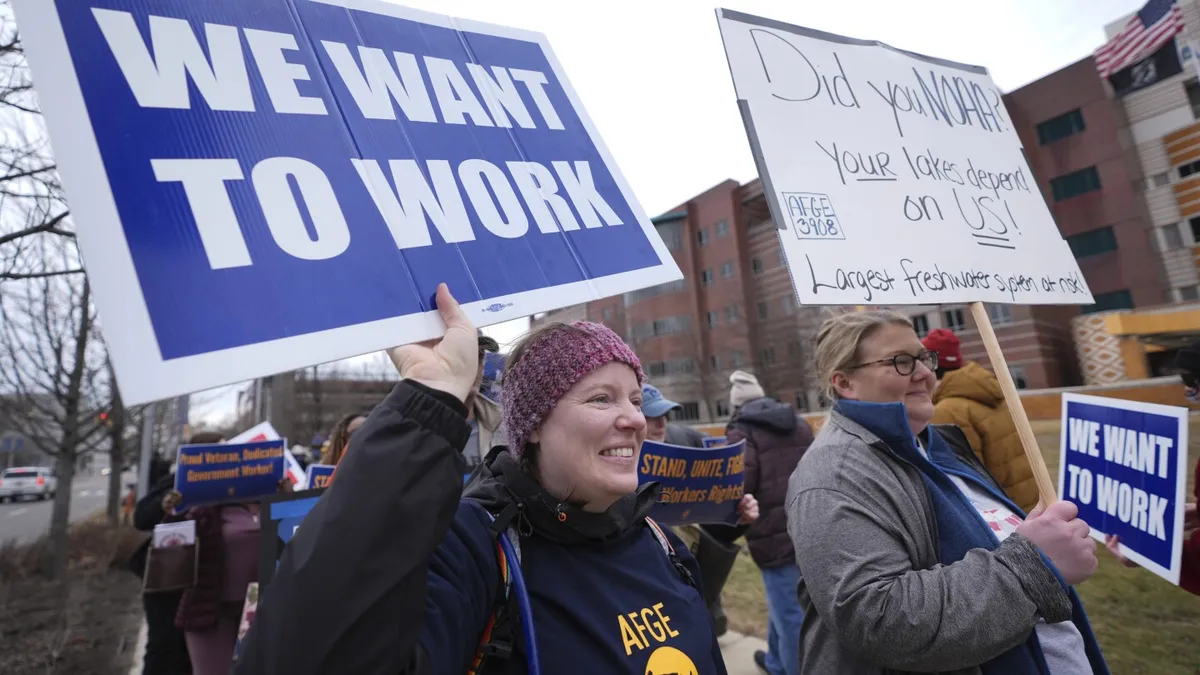
The recent massive firings at the National Oceanic and Atmospheric Administration (NOAA) have raised serious concerns among experts about public safety and the potential economic fallout. The NOAA is a crucial federal agency that impacts daily life through its monitoring of the oceans, atmosphere, and space. The agency produces hundreds of essential products daily, which experts argue are vital for saving lives and minimizing economic losses. With the recent firings, many believe that the safety of Americans is now at risk.
NOAA produces an astounding 301 billion weather forecasts each year, reaching approximately 96% of American households. These forecasts are crucial for various sectors, including aviation, agriculture, and disaster response. Admiral Tim Gallaudet, a former acting NOAA chief, emphasized the risks associated with the staff cuts, stating, "Lives are at risk for sure." The agency's forecasts are essential for safety in aviation and shipping, as well as for everyday Americans who rely on accurate weather information.
The timing of the firings is particularly troubling as the nation enters the peak of tornado season and the agricultural planting season. Former NOAA Administrator Rick Spinrad noted that the cuts could adversely affect public safety and the economy, especially in the Midwest, often referred to as the bread belt. Spinrad stated, “It’s going to affect safety. It’s going to affect the economy,” highlighting the far-reaching implications of these dismissals.
NOAA's role encompasses a wide range of services, including the issuance of weather warnings for deadly tornadoes, hurricanes, tsunamis, wildfires, and floods. Local and disaster officials depend on NOAA's forecasts to guide the public on how to stay safe during extreme weather events. Additionally, farmers rely on NOAA’s seasonal outlooks for crop management, while pilots depend on aviation forecasts for safe flight operations.
NOAA's influence extends beyond immediate weather forecasts. In the western United States, NOAA meteorologists provide critical up-to-date forecasts for firefighting crews, which can be a matter of life or death. The agency also plays a key role in managing fisheries worth billions of dollars and is responsible for ensuring safe shipping routes. Gallaudet warned that the firings could lead to more accidents similar to the incident in 2024 when a container ship collided with Baltimore's Francis Scott Key Bridge. This emphasizes the importance of NOAA's timely interventions in maintaining economic stability.
In addition to weather forecasting, NOAA is instrumental in environmental monitoring and disaster response. The agency's expertise is crucial during major oil spills, such as the 2010 BP Deepwater Horizon disaster. NOAA also forecasts space weather, which prevents potential collisions of satellites, including those operated by Elon Musk's SpaceX. Spinrad noted that SpaceX had previously sought NOAA's assistance after losing satellites due to a lack of understanding regarding space weather implications.
Although NOAA officials have not disclosed the exact number of staff dismissed, estimates range from 580 to 1,200 employees. Senator Chris Van Hollen reported approximately 650 terminations, with former NOAA leaders expressing that these cuts represent a significant loss to the agency. Jane Lubchenco, another former NOAA chief, described the firings as a “national disaster” that could lead to serious repercussions for public safety and the economy.
The majority of NOAA employees are dedicated to their work, driven by a passion for meteorology rather than monetary gain. Keith Seitter, a former director of the American Meteorological Society, described these individuals as committed professionals who often work during significant weather events out of a sense of duty. Seitter warned that the staff reductions would inevitably lead to critical oversights, potentially endangering lives.
Admiral Gallaudet characterized the staff cuts as “self-defeating,” expressing his disillusionment with the leadership style of former President Trump. As NOAA faces these unprecedented challenges, the implications of the firings will likely extend far beyond the agency itself, impacting public safety and the U.S. economy in profound ways.
For more information on climate and environmental issues, follow our updates.